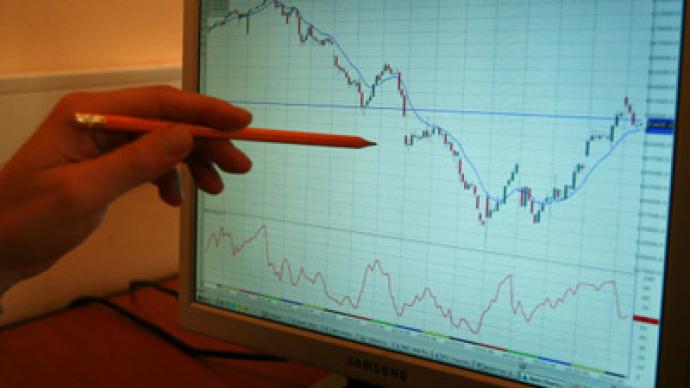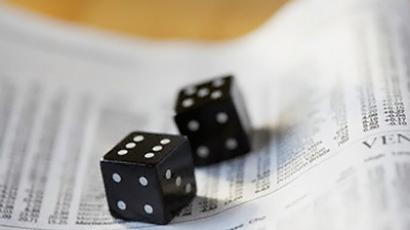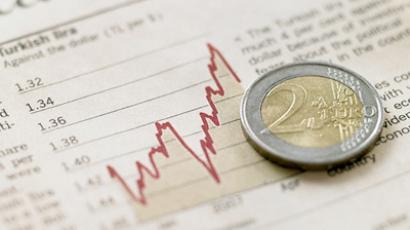Outlook on Russian equities: Alexander Krapivko

With the global economic outlook clouding expectations for Russian equities Business RT spoke with Alexander Krapivko, Senior Portfolio Manager at Renaissance Asset Managers, about the factors moving Russian stocks.
RT: What is the outlook for Russian equities through until the end of the year?Where do you expect MICEX to finish 2011? Which sectors are likely to be of most interest?AK: “The outlook for Russian equities is totally dependent on the situation in the financial markets abroad. Namely there are at least three risks out there, which includes the crisis in peripheral European debt that is now starting to get out of control, the slow pace of US economic growth and the possible Chinese economic hard landing.So, depending on developments in these areas, I see positive and negative scenarios for Russian equities.As for a positive scenario, I have again 3 major ideas. According to the first,European debt is contained (the ECB, IMF and European Union bought themselves some time by printing money and saving whatever they have to save in the debt markets). The second involves China escaping a hard landing and maintaining 9%+ economic growth. And the last is based on possible QE3 initiated in the US, which will make money abundant again all over the world. In this case Brent oil is close to $130 per barrel and MICEX is close to 1,900 by the end of the year.The negative scenario includes Greek default triggering a credit event throughout peripheral Europe, banks writing off losses from defaults andcommodities and risky assets sold off all over the world. In this case, the downside potential is 1,200-1,300 on the MICEX index.In the positive scenario the most interesting sectors will be steelmakers, financials and utilities. In the negative scenario, it’s better to bet on defensive names with corporate buybacks built in.”RT: Which sectors are surprising you?Which sectors would you stay away from?AK: “Currently sectors that are holding well are fertilizers (e.g. Uralkali) and mining (e.g. Norilsk Nickel). I would stay away from oils (high beta and correlation to expensive and volatile oil prices).”RT: How is the government’s privatization program likely to affect interest in Russian stocks?AK: “Privatization will influence the market both positively and negatively. On the one hand privatization will increase the liquidity and broadness of the equity market (e.g. liquidity and depositary receipt issuance), on the other hand privatization will create some overhang in the market with newly issued stocks.”RT: Russia’s return to the global IPO market earlier this year saw a number of companies pulling their IPOs or offering at a discount.Do Russian companies need to look at pricing IPOs and do you think that IPOs over the coming year will fare better than those at the start of the year?AK: “The wave of IPOs in Russia again increases the broadness of the market and allows improvements in the form of diversification from oil for long-term investors. I wouldn’t say that a lot of companies were placed at a discount because the current external macro situation weighs on investor risk appetite. Newly issued stock should be offered at a discount, for instance for the reason that company management should prove to the investor community that the company delivers what it promised at the road show.The success of upcoming IPOs will depend on appetite for risky assets all over the world and on the scenarios I mentioned earlier.”RT: How is the end of QE2 likely to impact the commodity heavy Russian stock market?AK: “QE2 actually influenced Russian equities through higher commodity prices. The end of cheap liquidity doesn’t make it better for expensive commodities. The only caveat is that the major part of QE2 money sits on the accounts of US banks and the effect of withdrawal of QE2 will be muted for risky assets like Russian equity.”RT: Are bigger investors becoming more positive about increasing exposure to Russian equities?AK: “Investor attitude towards Russia dependson general risk appetite, which in turn depends on external events, the outcome of the election season of 2011-2012 and the fundamental attractiveness of Russian equities, as they are now at a 20% discount to international peers.Now international investors are neutrally positioned in Russian equity in comparison to other emerging markets and their further interest will depend on the general stability of the global economy and oil prices.”RT: Is the merger of RTS and MICEX likely to have any effect on the perception of Russian stock internationally?AK: “The merger of RTS and MICEX depends on the details and actual terms of the merger. If these conditions will be tailored to the interests of investors and improve transparency and stability, then there will be a positive impact on sentiment.”
James Blake, Anastasia Kostomarova, RT














